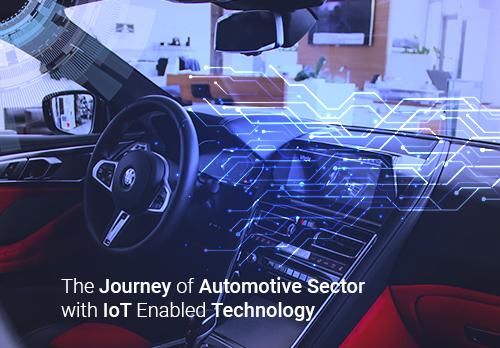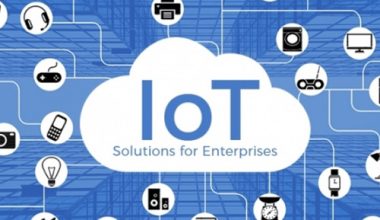Every industry has been influenced by digital transformation. Companies engaging in the digital transformation trend have been striving for the ultimate digital experience while meeting constantly changing consumer demands.
Businesses experienced strategic shifts in their journeys during this transformation process. Some have risen due to trends, others have entered technology mergers and acquisitions, and others have become chains.
Even though businesses have long recognized the importance of digital transformation, other priorities can sometimes take precedence. In contrast, prioritizing digital efforts has emerged as a critical business enabler for success in an increasingly competitive world.
The increased use of automation technologies will be a significant trend in digital transformation by 2023. Similarly, effective use of cloud technologies, low-code/no-code tools, hyper-automation, artificial intelligence (AI), and other technologies would greatly aid company scaling.
Some of the most recent advancements in digital transformation technology include hybrid work, intelligent search, Customer data platforms (CDPs), AIOps and machine learning, and platforms that connect Agile, DevOps, and ITSM.
The ‘Media and Entertainment’ industry is one such industry that has seen a rapid transition as a result of the digital transformation managed services trend. In recent years, the media and entertainment industry has witnessed the true form of the digital transformation strategy, as interactive video ads and content-driven strategies have expanded social media and other internet platforms.
Every industry is following in the footsteps of the media and entertainment industries. At the same time, consumers are demanding more content in more unique forms!
Before delving into the digital transformation trends for 2023, we must first understand the concept of digital transformation.
What is Digital Transformation?
Digital transformation solutions use technology to create new customer experiences, cultural norms, and business practices. It entails modifying corporate strategies for the digital era by utilising cutting-edge technology.
In contrast to previous attitudes and methods, the digital transformation strategy aims to shift the focus away from sales, marketing, and digital transformation customer experience services and towards the actual customers. As a result, over the last decade, customers have received significant priority when developing corporate goals, and businesses now base their plans on what customers require.
The paper must be replaced with online and mobile apps as part of a digital transformation strategy. As a result, it is more organised and clean, as well as more environmentally friendly and sustainable. The digital transition necessitates data security. Team members can organise everything in a secure cloud that they can easily access instead of sending spreadsheets or physical notes.
So, here are the Top 10 Most Significant Digital Transformation Trends for 2023.
Trust and Privacy
Trust and privacy are critical factors determining organisational progress in the digital transformation services journey. According to one global survey of over 4000 brands and consumers, 61% of brands admitted to losing consumer trust by failing to protect their data and information. There is a growing gap between consumers and brands, which brands must bridge to progress.
Aside from social media and government, traditional media was reportedly among the top three most distrusted industries. Given this, the future will focus on maintaining consumer data’s visibility and providing the best user experience possible with the collected data. Data regulations have already begun advocating for such measures, and more are coming.
Personalization
Personalization of services will be a critical factor in determining an organization’s success in digital transformation services companies in 2023 and beyond. There will be no free content or content for all! The more innovative the approach, the better the results. As a result, organizations need to personalize their approach to get the most out of their customers instead of simply pushing content for traction.
This approach, known as ‘smarter personalization,’ is not limited to content. It is reflected everywhere the brand interacts with the customer! And this will be critical for digital transformation customer relationship management.
Data-Driven Enterprise
Data is unquestionably at the heart of today’s Digital Transformation services companies. The ability to unlock and analyse data potential has become critical for driving business, streamlining operations, and launching new products and services.
Effective data utilisation is mainly responsible for the efficient movement of resources and the smooth flow of operations across organisations.
Connected User Experience
The average number of applications used in an organisation is rapidly increasing. Customers expect consistency when using multiple channels, such as messaging or mobile service portals.
Given this requirement, providing a connected experience is critical for businesses as part of their digital transformation consulting services efforts. Omni-channel customers with better-connected experiences were found to stay online longer than single-channel customers.
A connected experience entails giving customers improved and convenient access at any time and from any location. While an enterprise has an average of 900 applications, only 29% of them can provide a connected experience, according to survey results.
AI for Reducing overall operational expenses (OPEX)
According to one of the leading surveys, the media and entertainment industries are spending more and making less money. The industry’s operational expenses (OPEX) are outstripping profit margins. Spending is out of control to pursue early profits or gain a competitive advantage. Exactly at this point, the industry should reconsider its strategy.
It’s time to rethink how they handle content and spending power. And AI and Machine Learning (ML) are leading the charge! AI and machine learning techniques assist you in making better use of content and spending.
5G Technology
5G is the acronym for the fifth generation of mobile network technology. 5G’s essential characteristics include multi-peak data speeds, low latency, a better user experience, improved connectivity and availability, and increased network bandwidth.
Edge computing and 5G have the potential to produce some fascinating advances. For example, IBM will provide cloud services to Verizon and Telefonica to power 5G networks. In turn, using technologies such as artificial intelligence (AI), drone-initiated inspections, and video inspections, automation of routine jobs will prevent network problems.

IoT
As IoT makes it possible for machinery and things to interact with one another without requiring human intervention, the full value of data may be gathered through better and quicker decision-making, predictive analytics, and automation.
As billions of items, services, and systems become connected, the proliferation of more accessible and affordable sensors that convert physical data into digital content is anticipated to fuel the Internet of Things industry’s constant expansion. There will be 11.3 billion networked devices in 2021. The number is anticipated to increase to almost 30 billion by 2030.
As a result, several tech titans are quickly adopting IoT and reaping the benefits because startups and small businesses are progressively riding on the IoT bandwagon because they recognize how crucial it is for driving digital transformation and maximizing operational effectiveness.
Enterprise Resource Planning (ERP)
The first thing that comes to mind when discussing digital transformation services is technology. However, this is only sometimes the case.
Service providers for digital transformation are more concerned with establishing a new culture within an organisation. It consists of people, processes, and technology. As a result, rather than concentrating solely on developing effective media arms or channels to promote services, organisations should also focus on developing intelligent Enterprise Resource Planning (ERP).
ERP can assist you in lowering costs, increasing resource efficiency, and increasing productivity. While you may have already invested in technology and tools, it is time to focus on your back-office operations to see measurable results and high profitability.
Effective IT
Today, the IT department is a critical enabler of any business. The department assists in utilizing the full technological potential to deliver more by making effective and correct decisions on the use of emerging technologies. As a result, in order to succeed in the digital journey, organizations must expand beyond their current IT capabilities.
Multi-Cloud Utilization
The majority of businesses today operate in multi-cloud environments. However, one of the most difficult challenges is managing multi-clouds, particularly when moving workloads between clouds. API-led development and containerization provide solutions to this issue.
APIs aid in the discovery of the unique functionalities of applications running in multi-cloud environments. Containerization is also a tried-and-true solution for dealing with multi-cloud concerns. Get multi-cloud to improve your digital transformation managed services journey.
Partner Ecosystem
As a company grows, strategic partnerships become increasingly important. Successful businesses have already begun to build a collective ecosystem of external partners, stakeholders, and customers. This partner ecosystem assists digital businesses in seamlessly integrating products and services into the customer experience.
In Conclusion
The adoption of digital technology by a company disrupts while increasing revenue. This is known as digital business transformation. Every year, new digital business transformation trends emerge with the potential to accelerate business growth. The benefits of digital transformation include software monetization, data-driven insights, improved customer satisfaction, increased agility, and other advantages.




